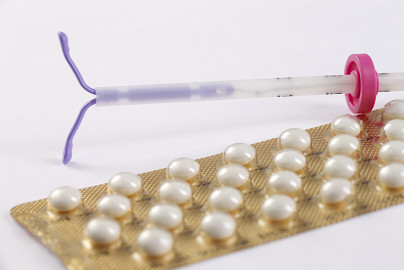Blog

How to Get Birth Control
Are you thinking of starting birth control? Or considering switching to another form of birth control? In either case, the best first step is to schedule an appointment with your Pacific Women’s OB/GYN Medical Group (PWOG) provider.
Many patients will use their annual well-woman exam as an opportunity to discuss birth control, but these exams are used for preventive care (screening purposes). Appointments to review birth control options should be separate, but our providers are always happy to address your questions.
Your birth control options at PWOG
The birth control pill (“the pill”)
The birth control pill is one of the most common forms of contraception women use. You will be required to take one pill, once every day (at the same time) until your period. Many pill packs offer an iron supplement to replace the contraceptive pill during the week of menstruation. The pill combines two hormones – estrogen and progesterone – to prevent pregnancy. The pill does not protect against STDs, so you will still need to use a condom during intercourse. Birth control pills must be taken correctly in order to be effective, so please ask your provider any questions you may have prior to starting the first pill pack.
IUD
An intrauterine device (IUD) is a small, t-shaped device that will be placed into your uterus by a PWOG provider. Removal of the device must also be completed by your PWOG provider. IUDs can be hormonal or non-hormonal; both prevent pregnancy, but they do not protect against STDs. Please discuss which form of IUD is best for your lifestyle. Some patients prefer a hormonal method, and others prefer non-hormonal. Many women favor the IUD because it removes the human error element present with the birth control pill (forgetting your pill, misplacing your pill, etc.). Most IUDs can last between three and five years.
Nexplanon
Nexplanon is a birth control implant, around the size of a matchstick. Your PWOG provider will need to insert Nexplanon into the upper part of your arm. Nexplanon uses the hormone progestin to prevent pregnancy, and it can last for up to three years. As with an IUD, women who are uninterested in taking a daily birth control pill may choose Nexplanon for ease and long-term use.
Ultimately, your chosen form of birth control will need to best suit your individual lifestyle. The reason different forms of contraception exist is that pregnancy prevention is not a one-size-fits-all process. Women have different needs, different family planning goals, and different expectations about their daily routine. We encourage patients to discuss birth control options with their provider.
Back to blog